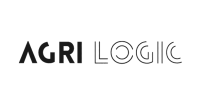In 2009 we were contracted by the 4C Association to conduct an impact assessment of the the implementation of its code of conduct in Vietnam, Uganda and Nicaragua. In 2014, 4C asked to revisit the same farmers in Uganda and Vietnam and conduct a similar study to identify and quantify long-term effects of its programme.
We designed an impact study for this that uses a difference-in-difference approach and relies on Propensity Score Matching to create realistic counter-factual scenarios. This allows us to answer the question: what would have happened to a farmer if s/he had decided not to join the 4C programme? Two experts from Wageningen University and Research provided extensive feedback on the research design and interpretation of results.
Farmers that are part of a 4C verified supply chain have more access to training. For farmers in Uganda, we confirm that 4C verified farmers are more efficient financially. Productivity has not changed significantly, but efficiency of production as measured by the production cost per Mt green coffee, has. In Vietnam, an origin where productivity is extremely high, we did not observe additional increases in productivity as a result of being 4C verified. Of the changes in economic and agronomic performance that are observed, none correlates with application of GAP training.
On the social dimension we again see notable effects in Uganda, but less so in Vietnam. A clear link between being 4C verified and an increase in dietary quality was confirmed for Uganda. In Vietnam we only see differences in wages paid to workers, which show a stronger and significant increase over time among 4C verified farmers.
Farmers that are part of a 4C verified supply chain have more access to training. For farmers in Uganda, we confirm that 4C verified farmers are more efficient financially. Productivity has not changed significantly, but efficiency of production as measured by the production cost per Mt green coffee, has. In Vietnam, an origin where productivity is extremely high, we did not observe additional increases in productivity as a result of being 4C verified. Of the changes in economic and agronomic performance that are observed, none correlates with application of GAP training.
On the social dimension we again see notable effects in Uganda, but less so in Vietnam. A clear link between being 4C verified and an increase in dietary quality was confirmed for Uganda. In Vietnam we only see differences in wages paid to workers, which show a stronger and significant increase over time among 4C verified farmers.
Environmental performance is hardly affected by 4C. Only in Uganda did 4C verified farmers take significantly less new land into production for coffee. Other environmental aspects were not impacted in either country.
